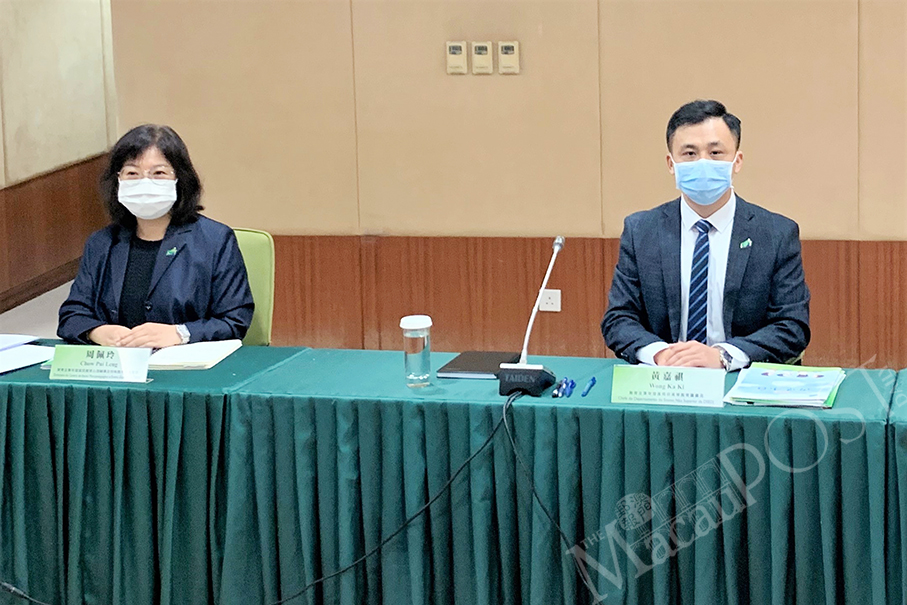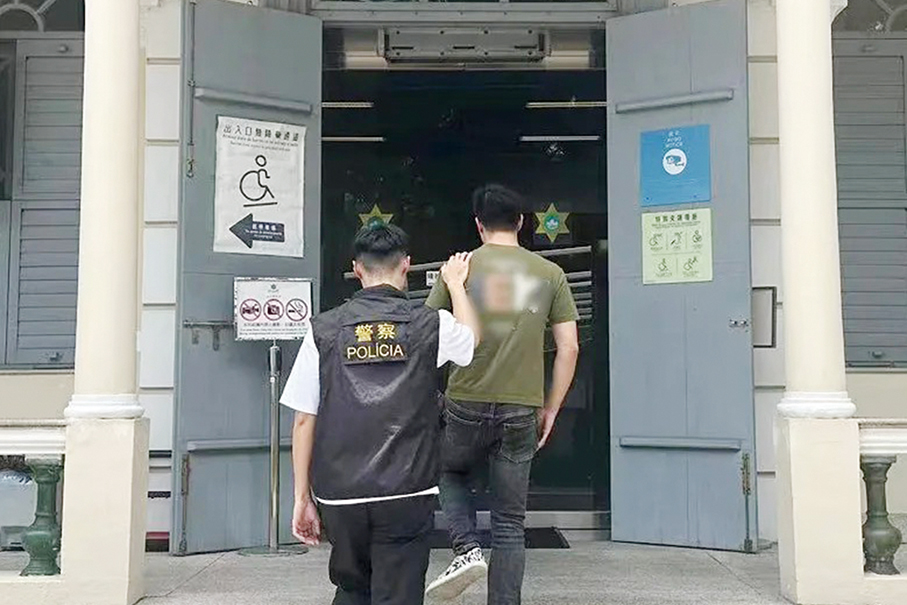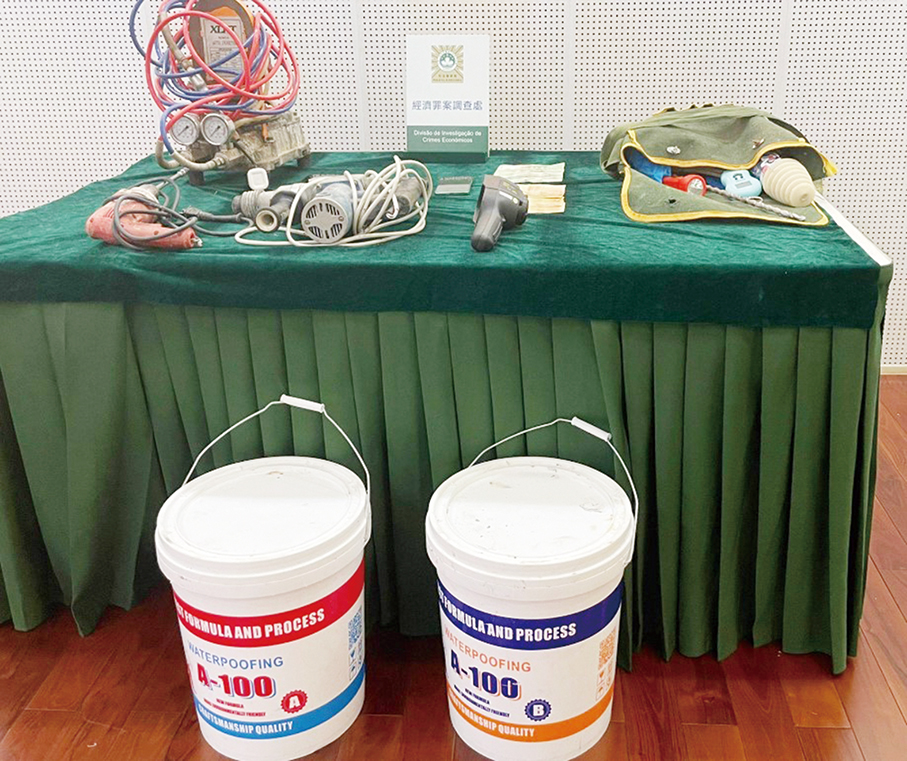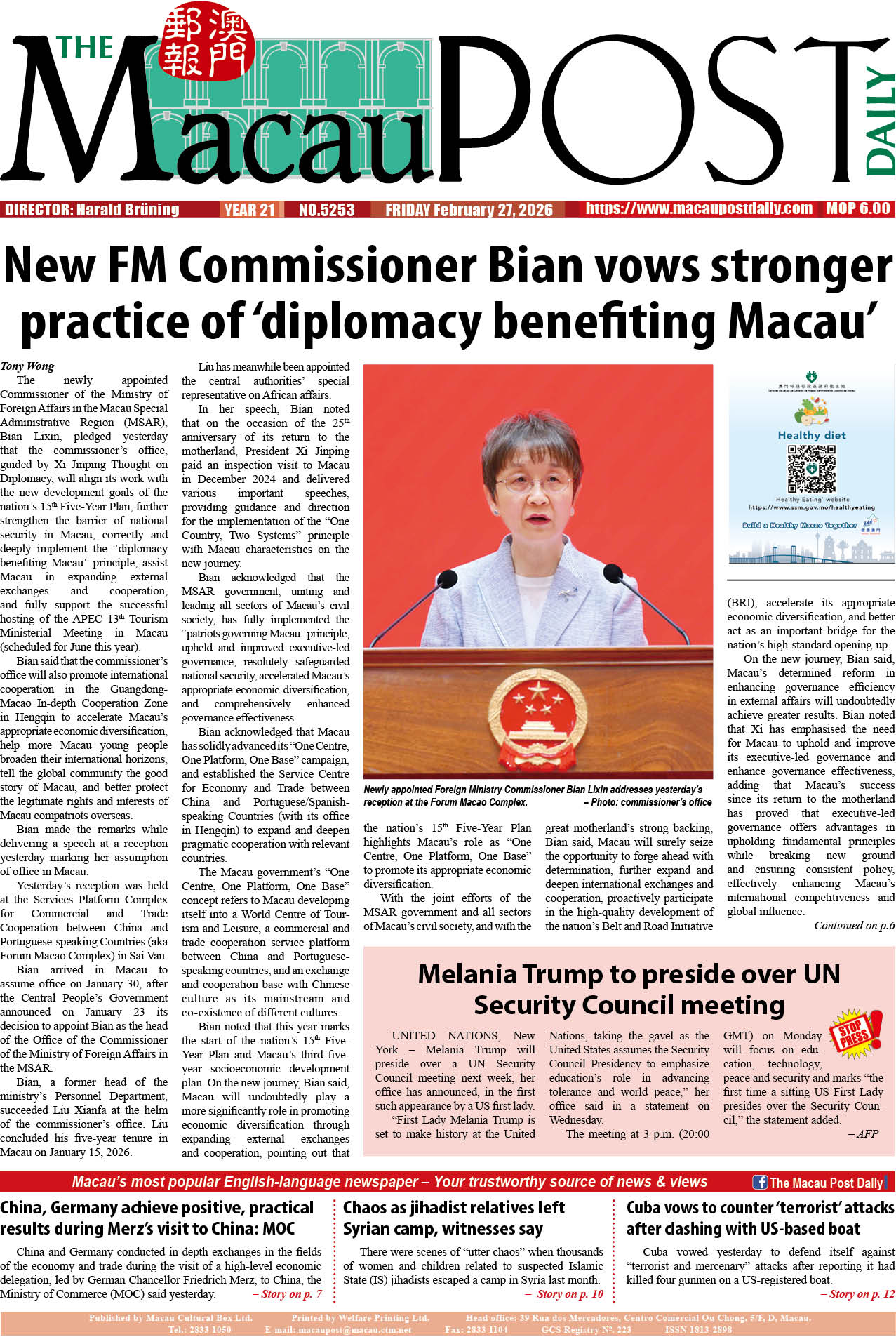The Education and Youth Development Bureau’s (DSEDJ) Non-Tertiary Education Department Chief Wong Ka Ki insisted yesterday that there is an official guideline as to whether the classes of primary and pre-schools should be suspended due to adverse weather, stressing that the bureau should not decide on the suspension of classes from a “subjective point of view”.
Wong made the remarks after a closed-door regular meeting of the Non-Tertiary Education Committee
The Macau Meteorological and Geophysical Bureau (SMG) hoisted the Red Rainstorm Warning Signal at 7:50 a.m. yesterday and schools were suspended for half a day or even for the whole day. Wong said that the bureau was on standby early in the morning, and immediately notified the media and schools as soon as the observatory had decided to hoist the Red Rainstorm Warning Signal, which indicates that classes should be suspended.
Wong underlined that the bureau also reminded schools that they must stay open, in case pupils arrived at the premises as they didn’t know about the weather warning. Wong said he acknowledged that the alert was an “awkward timing” and the heavy rain did not last for long, but he stressed that there were guidelines set up for adverse weather so that it was not up to DSEDJ officials to decide whether classes should be suspended. He said that his bureau needed to trust the weather station’s professional decision-making process and follow the protocol accordingly.
When asked whether the bureau received any complaints regarding the “late” announcement or about schools refusing to take pupils in after the severe weather warning was hoisted, Wong said that his bureau had received feedback from around 20 parents or schools, adding that his bureau immediately followed up on the cases.
According to Wong, even under a Yellow Rainstorm Warning, schools should be “lenient” towards pupils who are late or absent.
Meanwhile, Chow Pui Leng, the head of the DSEDJ’s Psycho-pedagogical support and special education centre, said during the press conference that from September 2020 to February 2021, around 6,300 cases were reported by schools that required the bureau’s attention. She underlined that life education should not be limited to classrooms, adding that the whole of civil society should take part in being the goalkeepers of young people’s lives.

The Education and Youth Development Bureau’s (DSEDJ) Non-Tertiary Education Department Chief Wong Ka Ki (right) and Chow Pui Leng, the head of DSEDJ’s Psycho-pedagogical support and special education centre, address the media after a closed-door regular meeting of the Non-Tertiary Education Committee yesterday. Photo: Prisca Tang








